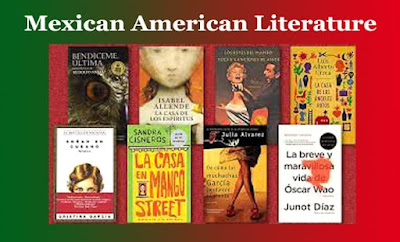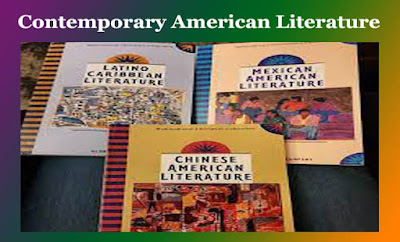Naturalism in American Literature
Naturalism in American Literature
Naturalism in American Literature
Introduction to Naturalism in American Literature
American literature of the late 19th century witnessed the emergence of a profound literary movement known as naturalism, which sought to illuminate the deterministic forces of nature and environment on human existence. Rooted in the scientific theories of the time, particularly Darwinism, naturalism portrayed characters as products of their surroundings, grappling with inexorable circumstances. In this exploration of naturalism in American literature, we will delve into the core principles of this movement, examining the influence of science, the pessimistic lens through which it perceives human destiny, and its keen focus on societal and environmental determinants. Through the lens of notable works and authors such as Stephen Crane, Edith Wharton, Jack London, Theodore Dreiser, and Kate Chopin, we will unravel the intricacies of naturalistic literature, where the relentless forces of nature serve as a backdrop against which characters confront their destinies, revealing the stark realities of the human condition. Join us on a journey through the pages of naturalistic narratives, where the relentless march of time and the indifference of nature paint a vivid tableau of life's struggles and triumphs.
Understanding Naturalism:
Naturalism in American literature is a literary movement that emerged in the late 19th century, emphasizing the deterministic forces of nature and environment on human behavior. It often presents a grim view of life, depicting characters struggling against uncontrollable circumstances.
Example: In Stephen Crane's novella "The Red Badge of Courage," the protagonist, Henry Fleming, faces the harsh realities of war, portraying the naturalistic theme of man's vulnerability to the indifferent forces of war.
Influence of Science and Darwinism:
Naturalistic writers were influenced by scientific theories, particularly Darwinism. They believed in applying scientific principles to literature, viewing characters as products of their environment and heredity.
*Example:* Edith Wharton's "Ethan Frome" explores the impact of rural life on its characters, depicting them as bound by the harsh realities of their environment and the constraints of society.
Pessimism and Determinism:
Naturalistic literature often presents a pessimistic outlook, suggesting that individuals have little control over their destinies. Deterministic forces, such as heredity and environment, shape the characters' lives.
Example: In Jack London's "To Build a Fire," the protagonist's struggle against the harsh Yukon environment underscores the naturalistic theme of man's futile battle against uncontrollable forces.
Depiction of Social Determinants:
Naturalism frequently delves into the impact of societal structures on individuals. It explores how social factors, such as poverty and class, shape the characters' lives and destinies.
Example: Theodore Dreiser's "Sister Carrie" portrays the protagonist's rise in the social hierarchy and the consequences of her choices, highlighting the deterministic nature of societal expectations.
Portrayal of Human Instincts and Desires:
Naturalistic literature often delves into raw human instincts and desires, showcasing how characters grapple with their basic needs in the face of challenging circumstances.
Example: Frank Norris's "McTeague" explores the descent of the protagonist into primal instincts as he succumbs to the pressures of poverty, jealousy, and societal expectations.
Nature as a Dominant Force:
Naturalistic writers use nature as a powerful force that shapes human experiences. The natural environment becomes a character in itself, influencing the characters' actions and outcomes.
Example: In Kate Chopin's "The Awakening," the Gulf of Mexico serves as a symbolic force representing both freedom and entrapment, contributing to the protagonist's journey of self-discovery.
Thus naturalism plays a prominent role in American literature. 0 0 0. Naturalism in American Literature.
Critical Essays on American Literature:
- Father of American Literature
- African American Literature Books
- Realism in American Literature
- Early American Literature
- American Literature - An Overview
- How Are American Literature and American Identity Interrelated
- What Impact Did Poe Have on American Literature
- American Literature Syllabi
- 19th Century American Literature
- Best American Literature
- Great American Literature
- American Literature Timeline
- American Literature Periods
- American Literature Class
- Health Anthology of American Literature
- American Literature Textbooks
- Romanticism in American Literature
- How Did Archetype of Devil Symbolize American Literature
- Latin American Literature
- Apologia American Literature
- Is American Literature Hard
- Classic African American Literature
- American Literature Antholotges
- Survey of American Literature
- 20th Century American Literature
- American Literature Reading List
- My Perspectives of American Literature
- Modernism First Developed in American Literature
- American Literature Syllabus
- American Literature Books for High School
- American Literature Example
- American Literature Journal
- American Literature
- British English and American English Which is Easier
- A Brief History of American English
- Difference Between British English and American English
- History of American Literature
- Contemporary American Literature
- American Literature Movements
- Themes in American Literature
- Mexican American Literature
- Famous American Literature
- American Association Conference 2017
- American Literature Short Stories
- What Makes American Literature American..










Comments
Post a Comment